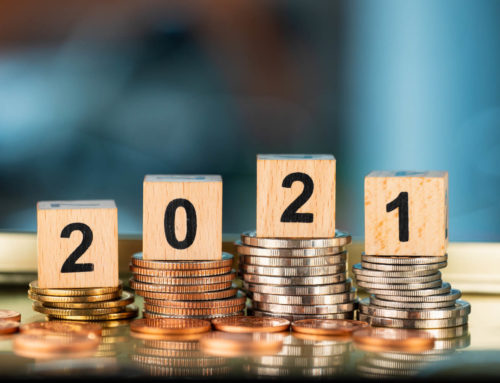So the time has come to buy a mortgage. Maybe it’s your first time, or maybe it’s not. Either way, a mortgage can seem daunting when you have to sign an agreement for 15 or 30 years. Not to mention the variations of interest rates and the different plans available for home loans.
Use these tips to help you prepare to take on a mortgage.
Understanding a Mortgage
There’s a difference between a mortgage and other common types of loans. A mortgage is a secured loan, meaning that in exchange for lower interest rates you offer up your home as collateral for the loan. Compare that to unsecured loans or unsecured debt, like credit cards where there are no forms of collateral and interest rates that compound in large percentages.
Know Your Credit Score
If you haven’t checked your credit score recently and are preparing to buy a house, now is the time. Checking your credit score before applying for a mortgage will give you valuable time and information for how you can improve your credit before getting a loan.
Improving your credit/FICO score will make you a better borrower in the eyes of lenders. As a result, you will have access to better mortgage rates and interest rates. Which can save you significant amounts of money over the life of the loan.
Do Your Best to Improve Your Credit Score
If you have blemishes on your credit score, take the time to get them fixed. If you haven’t paid credit card debt off on time, do what you can to start making those payments. Mainly, you just need to create a paper trail that will show lenders that you are a responsible borrower.
But, if you have a thin line of credit this can be a challenge. At F&M Bank, we offer secured credit card plans to help you start getting your credit ready to buy a home. Call a representative to learn more about our secured credit card plans.
Research Your Options

Because there are so many details that go into a mortgage, take your time to learn your options. Use these questions as prompts as you get started on your research.
- Are you looking for a 15-year loan?
- Or are you ready to commit to a 30-year loan?
- How much are you willing and able to make for your monthly mortgage payment?
- Do you know which type of mortgage loans will work best for you?
- Do you know the difference between a fixed-rate mortgage and an adjustable-rate mortgage?
You should also take the time to research loan prequalifications before shopping for a home. If you need help discussing your mortgage qualifications, call one of our mortgage specialists.
Save Up Towards a Large Down Payment
The closer you can get to making a down payment on your mortgage of 20 percent or more, the more money you will be able to save in the long run. Specifically, when you prepare a down payment of 20 percent or more, you will have access to better interest rates, create a smaller loan balance and lose less money to interest during the lifetime of your loan.
How much do I need to earn to buy a home?
Unfortunately because of the variables involved with shopping for a home, it’s hard to set an overall dollar amount that will work for everyone.
Ideally, you should save up to 20 percent of the down payment, but if that’s not possible at least 10 percent is a good goal.
Before you sign up for your loan, you should make sure that your monthly payments will fit within your income. You can use our mortgage calculators to begin calculating your expenses and identify your target mortgage payments.
Set a Realistic Budget
Even though the ideal would be to prepare a 20 percent down payment, you shouldn’t let that stop you from preparing for a home loan in Tennessee. As you save money and prepare for a loan, you should establish a solid working budget. This will help you prepare to make monthly mortgage payments, in addition to the closing costs associated with buying a mortgage.
How to make a home-buying budget?
As a general rule of thumb when getting ready to buy a house, the costs of your mortgage should not equal more than 28 percent of your monthly income. This is also known as the 28 percent rule.
To create a more detailed list for your budget, use our free Home Budget Analysis calculator.
Secure Lender Pre-Approval

When you are ready and feel confident you’re able to buy a home, work with a lender to get pre-approved. During the pre-approval process, the lender will examine your credit, your assets, and your income. You will need to provide some financial documents during this process, including pay stubs and bank statements.
After reviewing your financial information, your lender will determine how much your pre-approved loan will be worth. This is an essential step when buying a home, especially for determining your budget.
House Shopping
Of course, you can’t have a mortgage without a home. Shopping for a home is an entirely different topic, but suffice it to say that you should work with your real estate agent to find a property that meets your pre-approved loan’s value.
Begin Your Mortgage Application
Once you’ve gathered all of the paperwork and documentation, it’s time to submit your application. This process requires filling out the application, comparing loan documents and estimates, and then selecting a lender. Depending on your credit, the loan terms you want, and the lender, you may not get the exact loan terms you were hoping for. However, so long as you are in good financial standing, you should be able to get a good deal.
If you have any questions at all during this process, ask your lender for help.
Final Steps: Underwriting and Closing
Once your part of the application is complete, your lender will oversee the underwriting and closing process. If everything is approved, you should receive your mortgage and then can proceed to close.
Closing costs include the costs of title and loan officers and other parties involved with the closing. Usually, these costs add about three to five percent to the total price of the loan. These costs also ensure that all parties receive compensation for work done during the process.
Why is homeownership desirable?
Owning a home not only gives you your own place, but also some significant financial benefits. When you have a mortgage, you are allowed to include your interest in your tax write-offs. You can also build equity and build credit as you stay on top of your payments.
What are the tips for first-time homebuyers?
Much of this article covers advice that both first-time and returning buyers can benefit from. To review:
- Review and improve your credit score
- Thoroughly review and compare your lending options
- Create a realistic budget for yourself
- Save up for a down payment
- Get pre-approved for a mortgage
And if you’re a first-time homebuyer, you should tap into available assistance from the Federal Housing Administration and other programs.
Mortgage Lending at F&M Bank
As Tennessee’s premier regional bank, we have the honor of providing excellent service for all of our customers. Call our mortgage team to start working towards home sweet home today.




